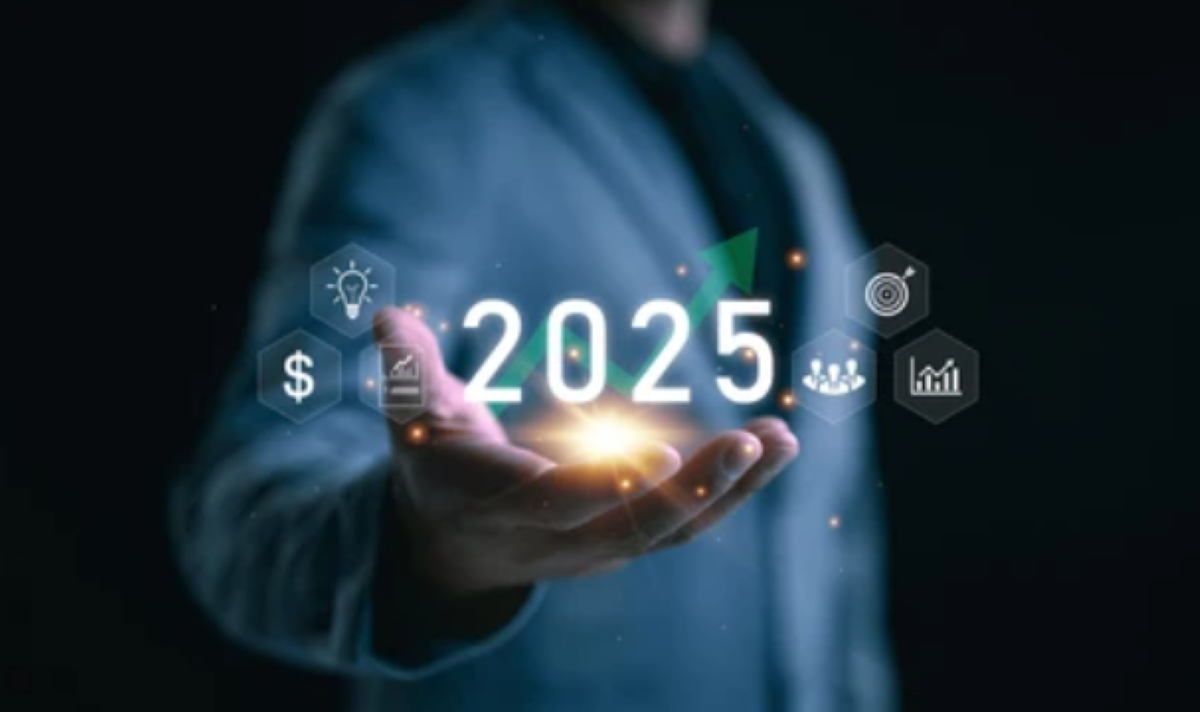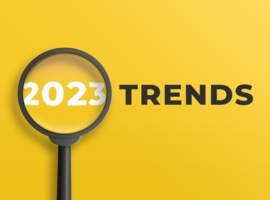The Future of Digital Advertising: What’s Changing in 2025
How Marketing Has Changed?
In the past, marketing mostly relied on big companies with large budgets. They could afford to run TV ads, billboards, and other expensive forms of advertising. Because of this, smaller businesses often struggled to get noticed.
Now, thanks to the internet and social media, even small businesses, like a small coffee shop, can reach a lot of people. The swift advancement of advertising technologies has led to the emergence of numerous trends that are consistently influencing the future of advertising.
However, marketing today is not just about having a good idea; it requires being quick and adaptable. This means that marketers need to be ready to change their strategies quickly because things like online algorithms (rules that determine what you see on social media or search engines) can change at any time. New social media platforms are always appearing, and people’s habits are changing too, so businesses must stay alert and adjust to keep up.
Power of Digital Platforms
In the past, businesses used a method called “spray and pray,” where they would send out ads to everyone, hoping some people would be interested. Now, thanks to digital platforms, businesses can be much more specific about who they target with their advertising. If you want to implement effective strategies and packages that align with your business goals. Then you can connect our digital marketing agency in Mumbai known as Digimanic. We analyze your digital media needs and provide you with packages and services that will help you meet your business goals.
Social media has become very important in connecting businesses with customers. It allows people to form communities and share their interests. Social media platforms like Facebook, Instagram, and X (formerly Twitter) have a big impact on how people shop and decide what they like. They provide new ways for businesses to reach customers and promote their products.
Trends Shaping the Future of Digital Advertising
The digital advertising field is largely influenced by technology, and advancements in tech often lead to significant changes in advertising patterns. Here are some new technologies that have the potential to bring about major transformations in the future of digital advertising industry.
Artificial Intelligence and Machine Learning
Artificial intelligence (AI) is really important for the future of digital advertising in India. Going back before the year 2000, AI is getting better because of a technology called machine learning. This allows AI to learn from the data that it receives and improve over time.
One of the key benefits of AI in advertising is its ability to quickly analyze large amounts of data. This means businesses can understand their customers better and predict what they might do next. When they have this kind of understanding, they can create marketing messages that speak directly to their customers’ needs and interests. AI also helps marketers create personalized ads that reach the right people. Customers will feel more connected to the brand, which can make them more loyal in the long run.
With the help of advanced machine learning, these tools can help businesses figure out the best ways to reach their target audience, which can lead to more people buying their products or services. These tools also keep improving the advertising campaigns over time to get the best results possible, all while allowing businesses to see how well their ads are performing.
Predictive Analytics in Audience Targeting
Predictive analytics uses advanced technology, like machine learning to look at old data. It helps businesses figure out trends and what might happen in the future. In the world of digital advertising, predictive analytics looks at how people behave online. This includes things like their interests, what they like to buy, and different information about them like their age and location.
Specific Uses:
- Customer Segmentation: Breaking down customers into groups based on their behavior and characteristics, so advertisers can tailor messages for each group.
- Product Recommendations: Providing suggestions on what products a customer might want, based on their past behavior and interests.
- Churn Prediction: Identifying customers who are likely to stop engaging with ads, allowing businesses to take action to keep them interested.
Unlike traditional analytics that looks back at what happened in the past, but predictive analytics goes further by trying to forecast how customer behavior might change in the future.
AI-Driven Content Creation
Content marketing involves creating valuable content like blogs, social media posts, and ads to attract and engage customers. Companies spend a significant part of their marketing budgets—between 11% to 50%—on content marketing, which shows how crucial it is.
However, creating good content can take a lot of time and effort, especially if a company needs to produce a lot of it. This is where generative AI comes in. Generative AI tools can help marketers create content more quickly and efficiently. According to a survey by HubSpot, 77% of marketers use AI to create more content than they did before.
Using AI tools helps busy marketers save time, which is really valuable since they often have multiple responsibilities. Even saving a little time can be very helpful. Here are some specific tasks in content marketing where AI can be useful:
- Coming up with ideas for content.
- Automating routine tasks, like keeping a content calendar updated.
- Creating visual content, such as images for ads.
- Setting goals for what you want your content to achieve.
- Making video ads.
In the fast-paced world of content marketing, using AI gives marketers a big advantage over their competitors.
Augmented Reality (AR) and Virtual Reality (VR)
Virtual Reality (VR) and Augmented Reality (AR) are set to have a significant impact on the future of digital advertising, especially as an increasing number of people around the world are getting access to VR technology. Augmented Reality (AR) adds digital elements to the real world. For example, you can see how a piece of furniture would look in your room using your phone. Whereas, Virtual Reality (VR) creates a completely computer-generated environment that you can explore, like stepping into a video game or a virtual store.
With these two reality technologies companies can let customers “try before they buy” by using AR and VR. For example, you could see how a piece of furniture looks in your room or try on clothes in a virtual dressing room, all from your own home. These technologies make shopping experiences more interactive and memorable. They help customers feel connected to the brand by allowing them to simulate the use of products, which can lead to stronger emotional responses.
Blockchain for Transparency and Trust
As we know that, the future of digital advertising relies heavily on data. However, there are big issues with privacy and transparency. Many people—like consumers, brands and ad agencies often don’t trust each other. This lack of trust makes it harder for them to work together effectively.
Now, blockchain technology can help fix this. Think of blockchain like a special digital notebook that everyone can see but no one can change. Each time an ad is shown or a data transaction happens, it gets written down in this notebook in a way that everybody involved can check, but no one can tamper with. Because the information is stored publicly and can be verified, everyone can trust that it’s accurate.
For example, advertisers can see where their ads are running and how well they are performing. If they want to know if their ads are reaching the right people, they can look at the blockchain and find that information easily.
The landscape of digital advertising is set for transformative changes in 2025, driven by advancement in advertising technologies and shifting consumer expectations. To stay competitive, businesses must adapt to trends like AI-driven personalization, the rise of voice search, and the integration of social commerce. Collaborating with a knowledgeable partner can make all the difference. A reputable Digital Marketing Company in Mumbai can guide you through this evolving landscape. At DigiManic, we offer comprehensive 360-degree services tailored to analyze your digital media needs, helping you implement effective strategies and packages that align with your business goals. Embrace the future of digital advertising with the right insights and support, and position your brand for success in this dynamic market.





There are no comments